Quotes & Sayings About Controlling Your Feelings
Enjoy reading and share 19 famous quotes about Controlling Your Feelings with everyone.
Top Controlling Your Feelings Quotes
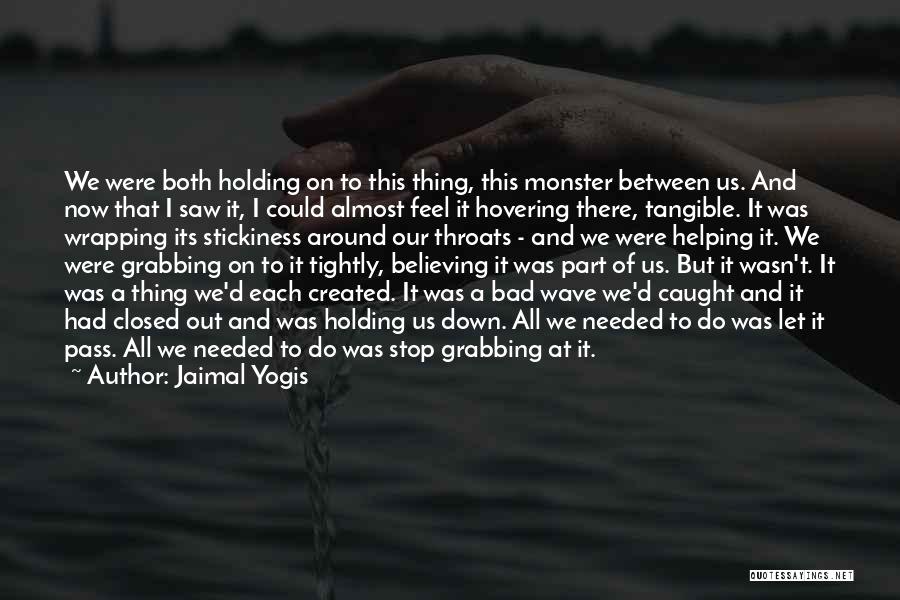
We were both holding on to this thing, this monster between us. And now that I saw it, I could almost feel it hovering there, tangible. It was wrapping its stickiness around our throats - and we were helping it. We were grabbing on to it tightly, believing it was part of us. But it wasn't. It was a thing we'd each created. It was a bad wave we'd caught and it had closed out and was holding us down. All we needed to do was let it pass. All we needed to do was stop grabbing at it. — Jaimal Yogis
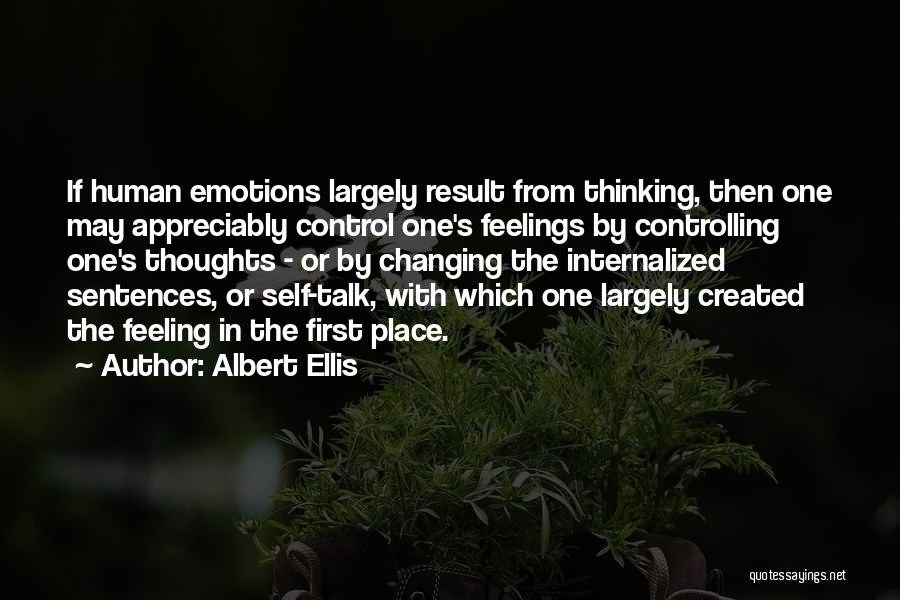
If human emotions largely result from thinking, then one may appreciably control one's feelings by controlling one's thoughts - or by changing the internalized sentences, or self-talk, with which one largely created the feeling in the first place. — Albert Ellis
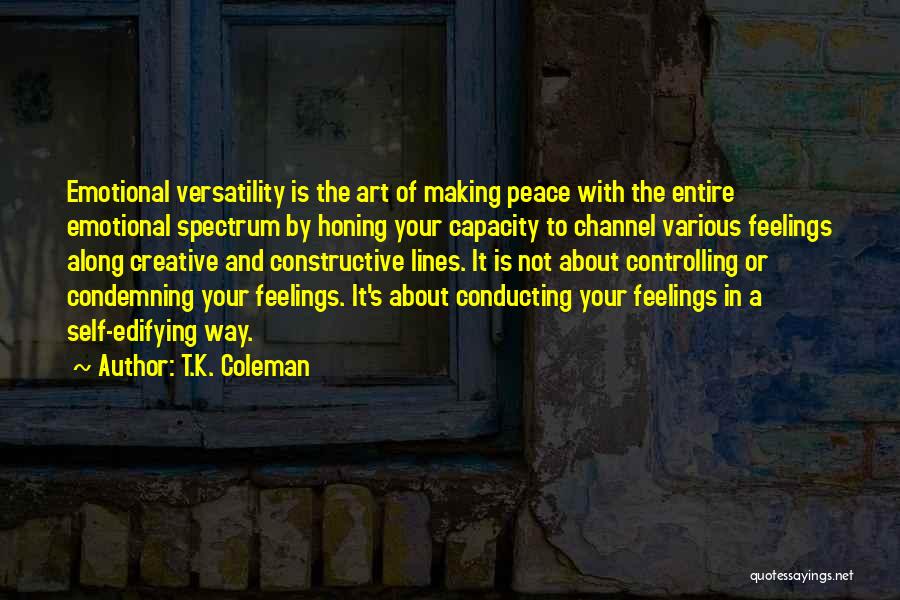
Emotional versatility is the art of making peace with the entire emotional spectrum by honing your capacity to channel various feelings along creative and constructive lines. It is not about controlling or condemning your feelings. It's about conducting your feelings in a self-edifying way. — T.K. Coleman
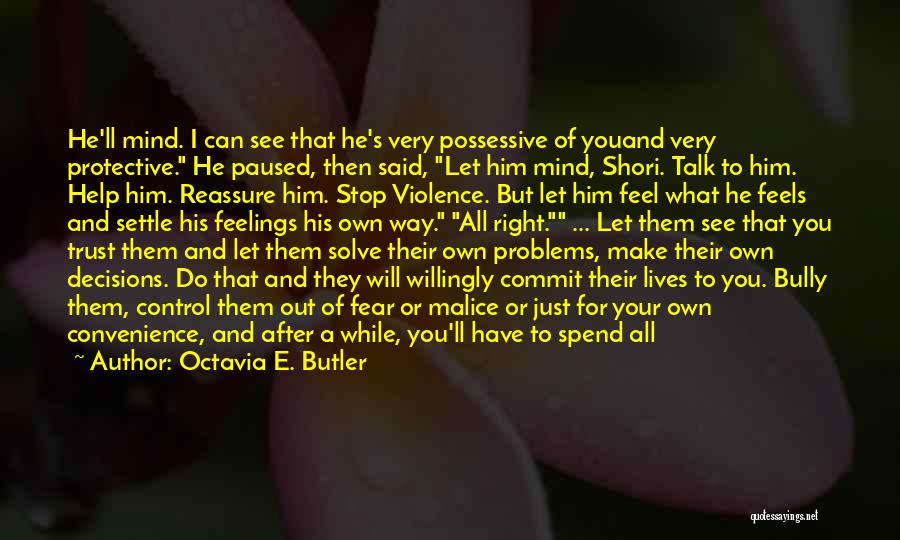
He'll mind. I can see that he's very possessive of you
and very protective." He paused, then said, "Let him mind, Shori. Talk to him. Help him. Reassure him. Stop Violence. But let him feel what he feels and settle his feelings his own way."
"All right."
" ... Let them see that you trust them and let them solve their own problems, make their own decisions. Do that and they will willingly commit their lives to you. Bully them, control them out of fear or malice or just for your own convenience, and after a while, you'll have to spend all your time thinking for them, controlling them, and stifling their resentment. — Octavia E. Butler
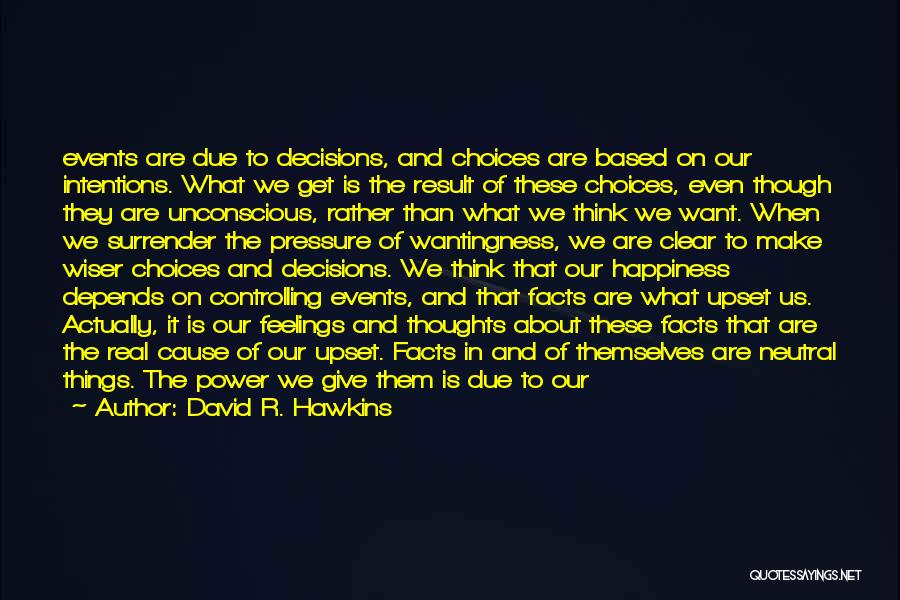
events are due to decisions, and choices are based on our intentions. What we get is the result of these choices, even though they are unconscious, rather than what we think we want. When we surrender the pressure of wantingness, we are clear to make wiser choices and decisions. We think that our happiness depends on controlling events, and that facts are what upset us. Actually, it is our feelings and thoughts about these facts that are the real cause of our upset. Facts in and of themselves are neutral things. The power we give them is due to our attitude of acceptance or non-acceptance and our overall feeling state. — David R. Hawkins
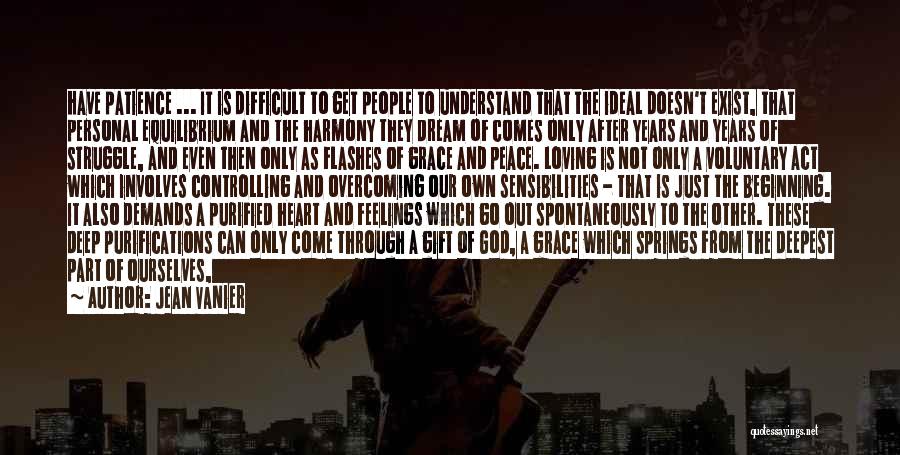
Have patience ...
It is difficult to get people to understand that the ideal doesn't exist, that personal equilibrium and the harmony they dream of comes only after years and years of struggle, and even then only as flashes of grace and peace.
Loving is not only a voluntary act which involves controlling and overcoming our own sensibilities - that is just the beginning. It also demands a purified heart and feelings which go out spontaneously to the other. These deep purifications can only come through a gift of God, a grace which springs from the deepest part of ourselves, where the Holy Spirit lives. "I will give them a new heart, and put a new spirit within them; I will take the stony heart out of their flesh, and give them a heart of flesh" (Ezekiel 11:19). — Jean Vanier
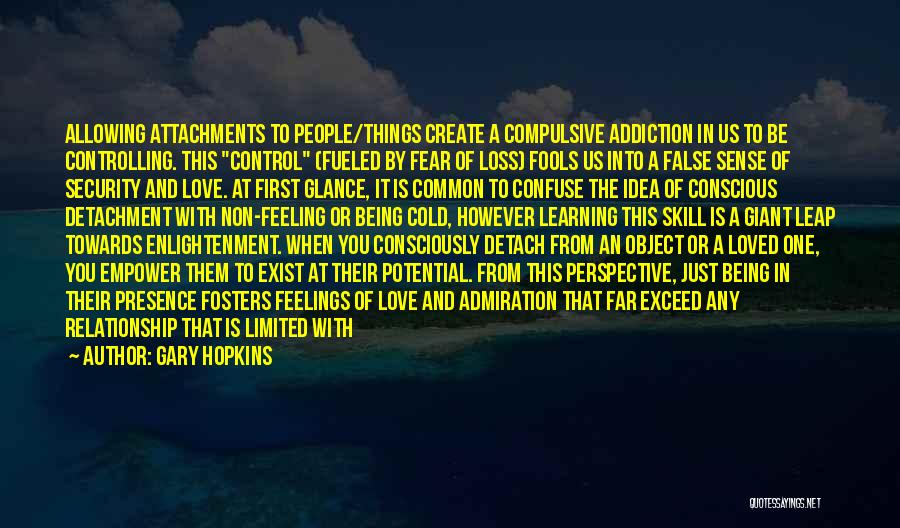
Allowing attachments to people/things create a compulsive addiction in us to be controlling. This "control" (fueled by fear of loss) fools us into a false sense of security and love. At first glance, it is common to confuse the idea of Conscious Detachment with non-feeling or being cold, however learning this skill is a giant leap towards enlightenment. When you consciously detach from an object or a loved one, you empower them to exist at their potential. From this perspective, just being in their presence fosters feelings of love and admiration that far exceed any relationship that is limited with expectations, confinement and control — Gary Hopkins
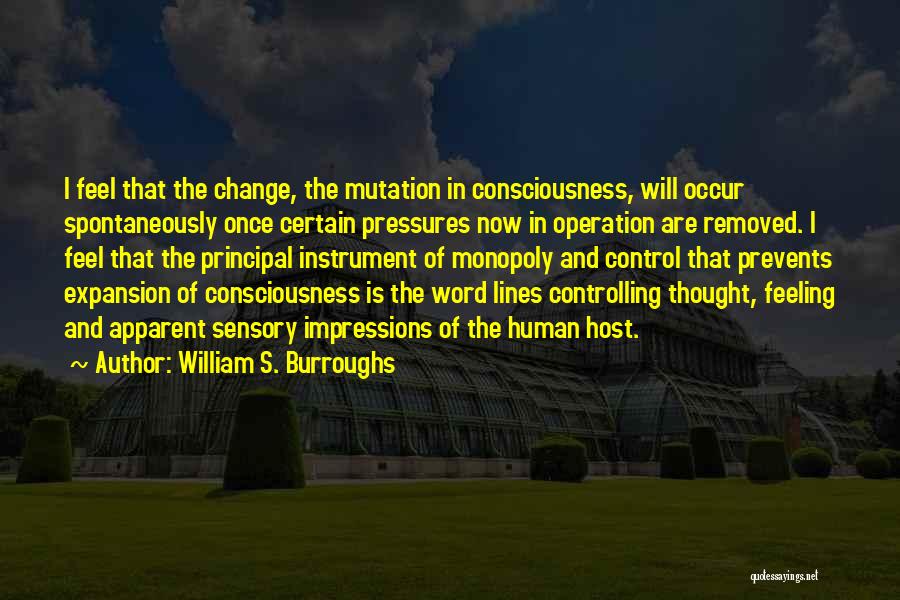
I feel that the change, the mutation in consciousness, will occur spontaneously once certain pressures now in operation are removed. I feel that the principal instrument of monopoly and control that prevents expansion of consciousness is the word lines controlling thought, feeling and apparent sensory impressions of the human host. — William S. Burroughs
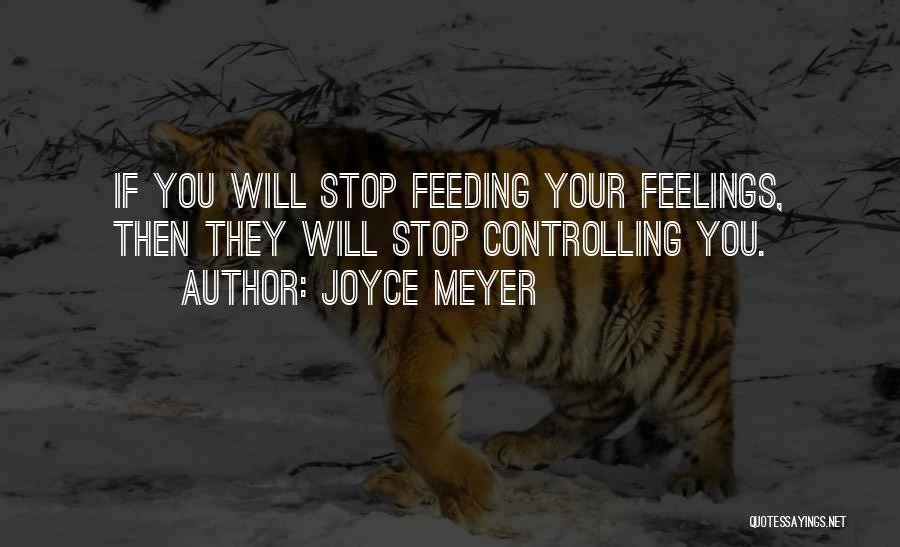
If you will stop feeding your feelings, then they will stop controlling you. — Joyce Meyer

First of all, you have to keep unmasking the world about you for what it is: manipulative, controlling, power-hungry, and, in the long run, destructive. The world tells you many lies about who you are, and you simply have to be realistic enough to remind yourself of this. Every time you feel hurt, offended, or rejected, you have to dare to say to yourself: 'These feelings, strong as they may be, are not telling me the truth about myself. The truth, even though I cannot feel it right now, is that I am the chosen child of God, precious in God's eyes, called the Beloved from all eternity, and held safe in an everlasting belief. — Henri J.M. Nouwen
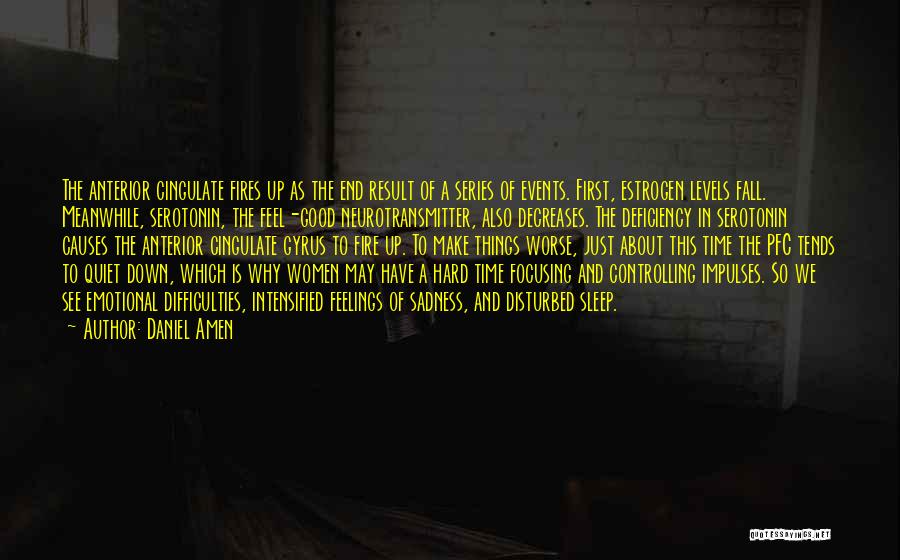
The anterior cingulate fires up as the end result of a series of events. First, estrogen levels fall. Meanwhile, serotonin, the feel-good neurotransmitter, also decreases. The deficiency in serotonin causes the anterior cingulate gyrus to fire up. To make things worse, just about this time the PFC tends to quiet down, which is why women may have a hard time focusing and controlling impulses. So we see emotional difficulties, intensified feelings of sadness, and disturbed sleep. — Daniel Amen
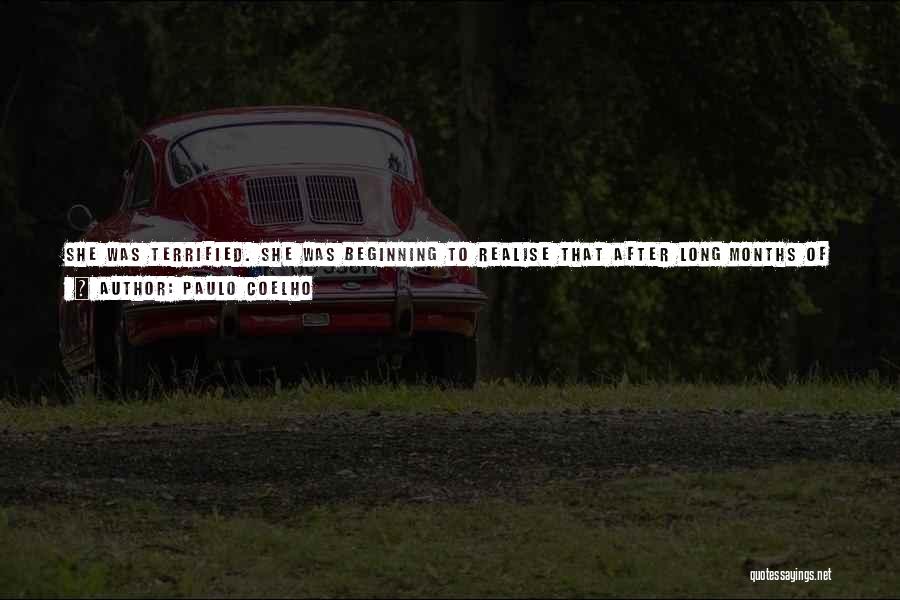
She was terrified. She was beginning to realise that after long months of selfcontrol,
the pressure, the
earthquake, the volcano of her soul was showing signs that it was about to erupt, and the
moment that this happened, she would have no way of controlling her feelings. — Paulo Coelho
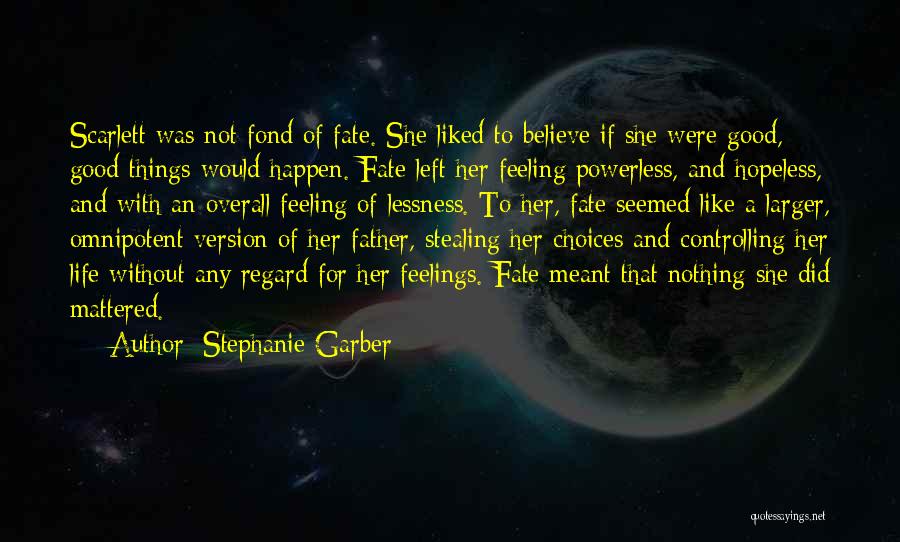
Scarlett was not fond of fate. She liked to believe if she were good, good things would happen. Fate left her feeling powerless, and hopeless, and with an overall feeling of lessness. To her, fate seemed like a larger, omnipotent version of her father, stealing her choices and controlling her life without any regard for her feelings. Fate meant that nothing she did mattered. — Stephanie Garber
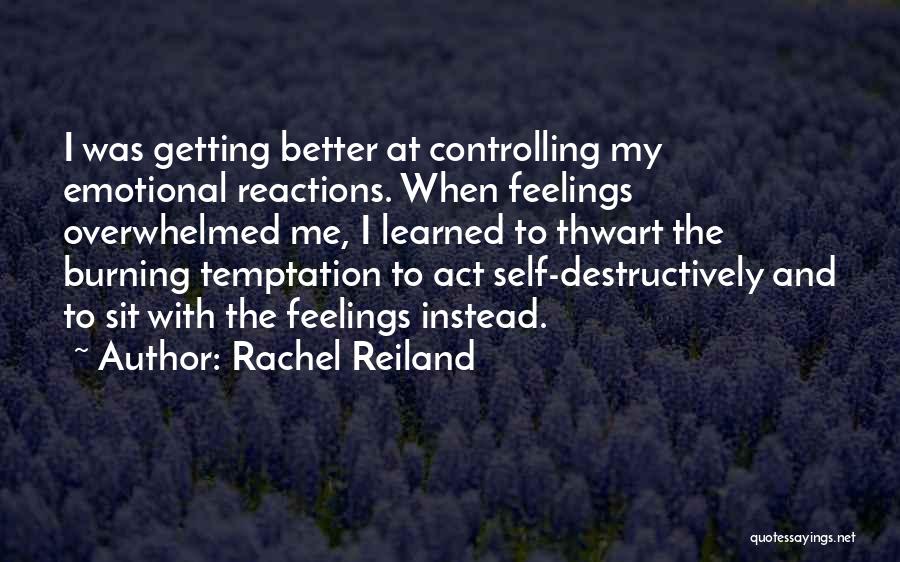
I was getting better at controlling my emotional reactions. When feelings overwhelmed me, I learned to thwart the burning temptation to act self-destructively and to sit with the feelings instead. — Rachel Reiland
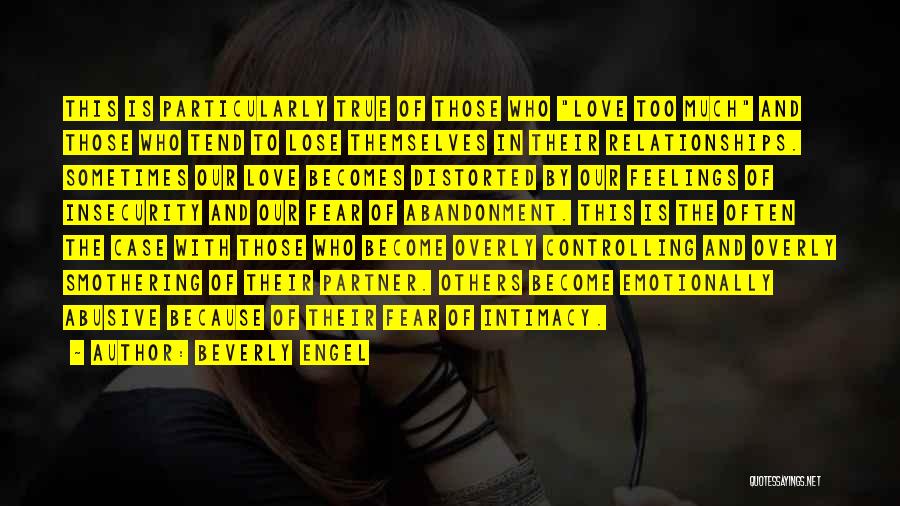
This is particularly true of those who "love too much" and those who tend to lose themselves in their relationships. Sometimes our love becomes distorted by our feelings of insecurity and our fear of abandonment. This is the often the case with those who become overly controlling and overly smothering of their partner. Others become emotionally abusive because of their fear of intimacy. — Beverly Engel
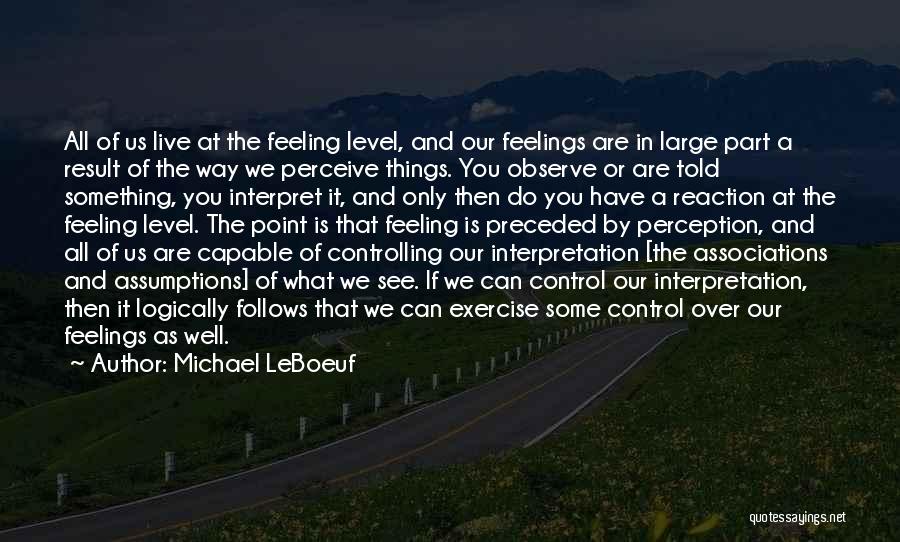
All of us live at the feeling level, and our feelings are in large part a result of the way we perceive things. You observe or are told something, you interpret it, and only then do you have a reaction at the feeling level. The point is that feeling is preceded by perception, and all of us are capable of controlling our interpretation [the associations and assumptions] of what we see. If we can control our interpretation, then it logically follows that we can exercise some control over our feelings as well. — Michael LeBoeuf
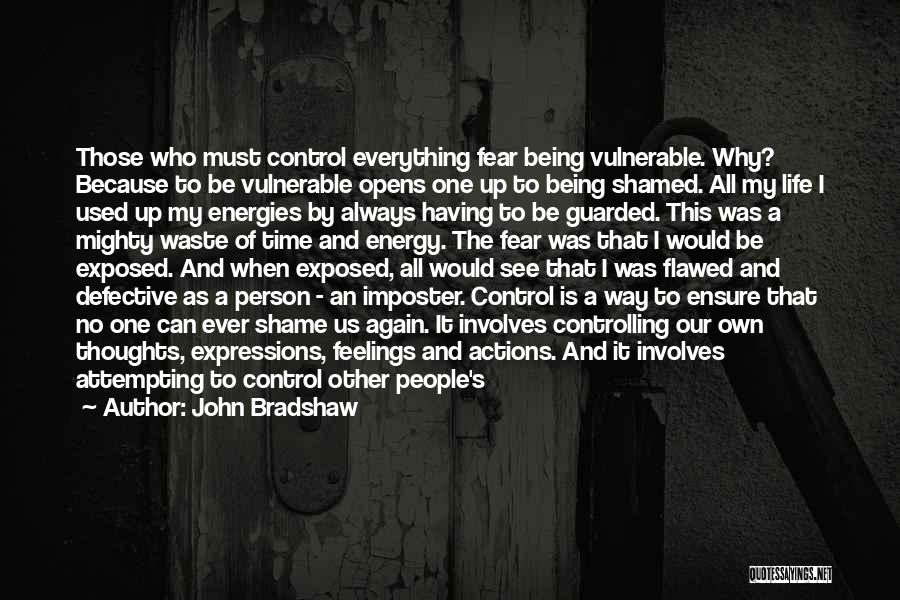
Those who must control everything fear being vulnerable. Why? Because to be vulnerable opens one up to being shamed. All my life I used up my energies by always having to be guarded. This was a mighty waste of time and energy. The fear was that I would be exposed. And when exposed, all would see that I was flawed and defective as a person - an imposter. Control is a way to ensure that no one can ever shame us again. It involves controlling our own thoughts, expressions, feelings and actions. And it involves attempting to control other people's thoughts, feelings and actions. Control is the ultimate villain in destroying intimacy. We cannot share freely unless we are equal. When one person controls another, equality is ruptured. — John Bradshaw
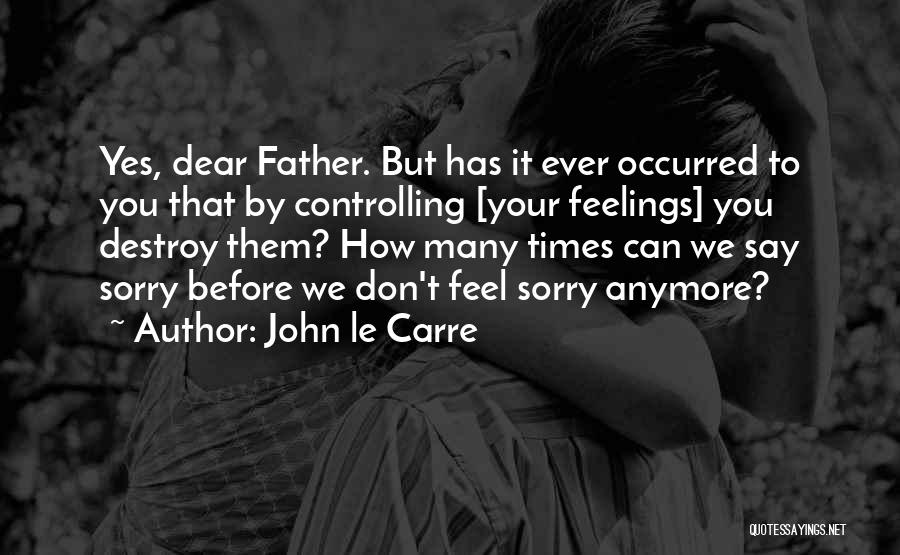
Yes, dear Father. But has it ever occurred to you that by controlling [your feelings] you destroy them? How many times can we say sorry before we don't feel sorry anymore? — John Le Carre
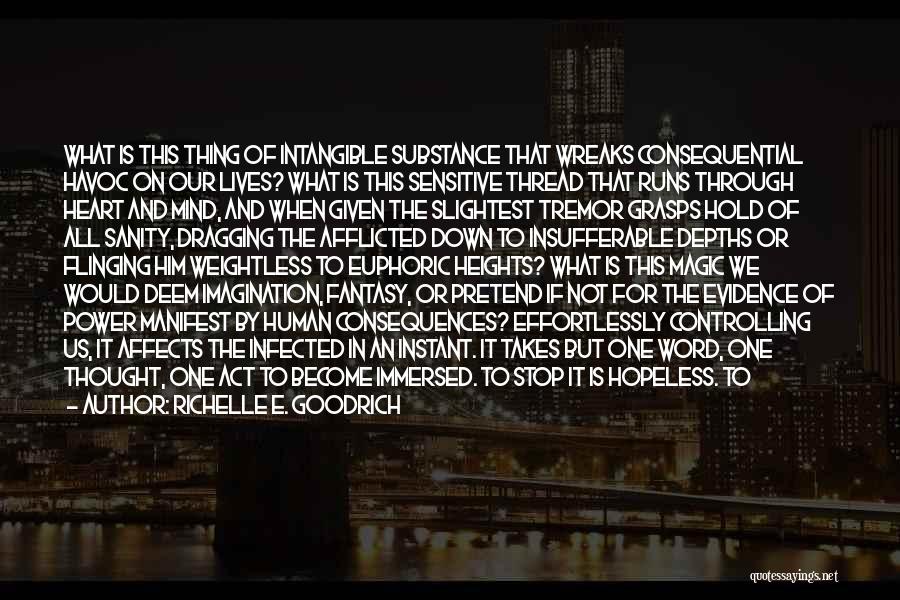
What is this thing of intangible substance that wreaks consequential havoc on our lives? What is this sensitive thread that runs through heart and mind, and when given the slightest tremor grasps hold of all sanity, dragging the afflicted down to insufferable depths or flinging him weightless to euphoric heights? What is this magic we would deem imagination, fantasy, or pretend if not for the evidence of power manifest by human consequences? Effortlessly controlling us, it affects the infected in an instant. It takes but one word, one thought, one act to become immersed.
To stop it is hopeless.
To stifle it, demanding.
To think to master it is both improbable and pretentious.
What is this invisible hand that blinds our eyes and reigns hearts with a string? It is nature's drug and poison we call emotion. — Richelle E. Goodrich





